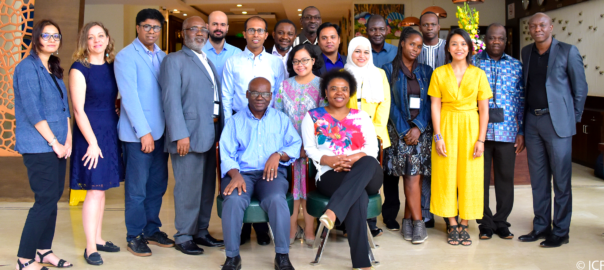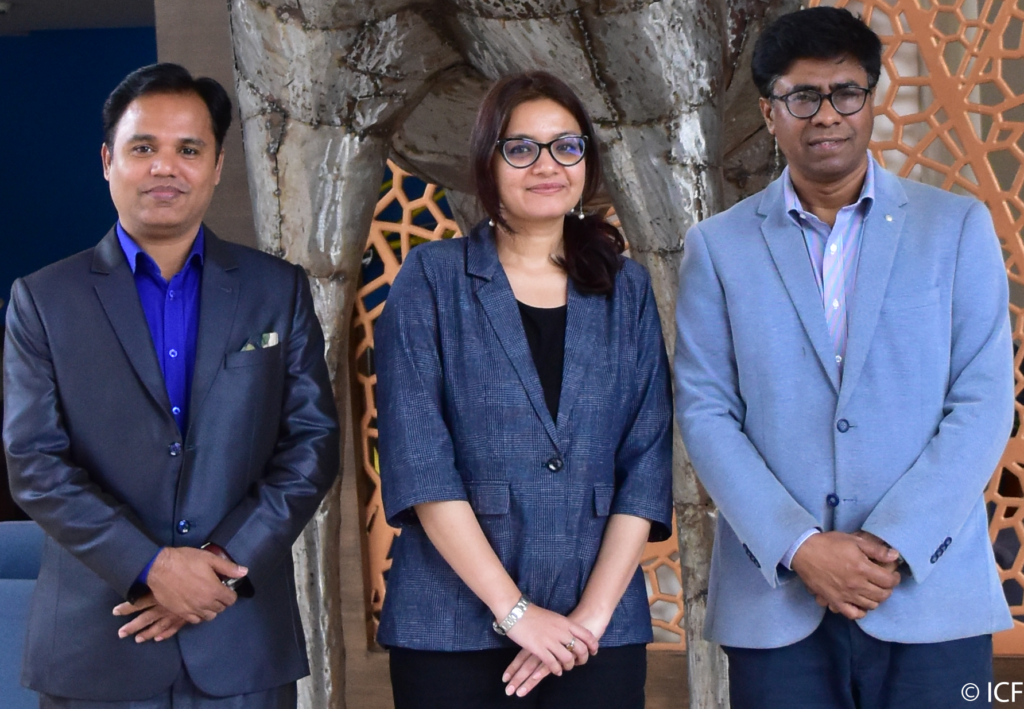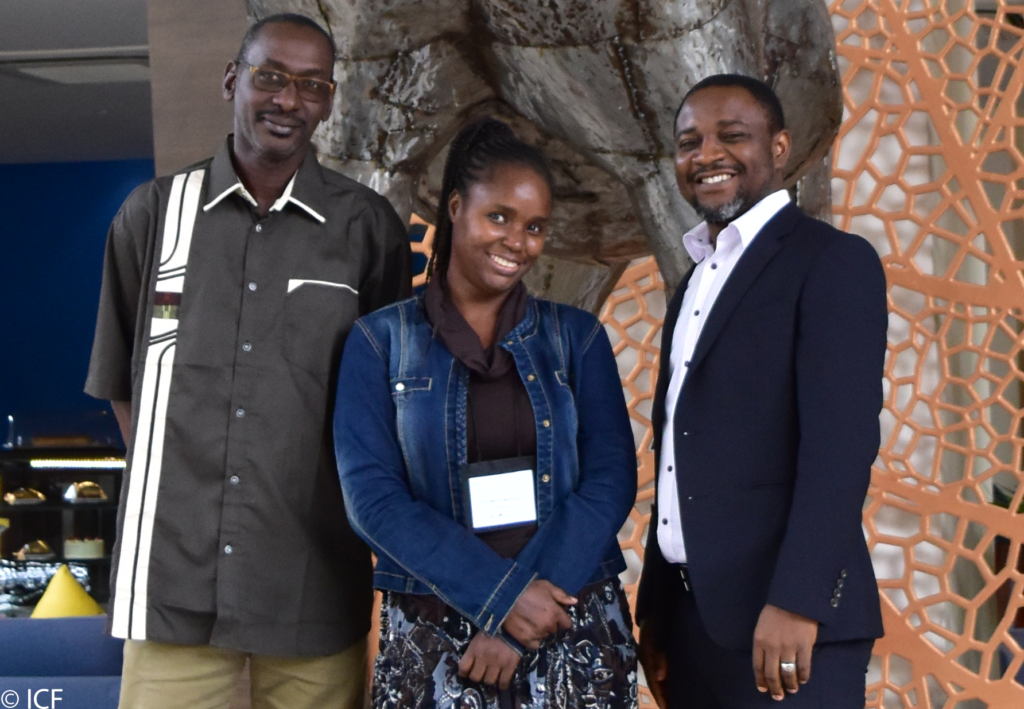Reflections from the 2020 DHS Fellows Program

The DHS Fellows Program builds the long-term institutional capacity of universities in DHS countries to train students and faculty to analyze DHS data. Since 2011, the DHS Fellows Program has trained more than 150 researchers from over 40 universities in 25 countries in Africa, Asia, and the Middle East. Typically, Fellows attend two separate in-person workshops, prepare publication-quality research papers in teams using DHS datasets, and implement capacity strengthening activities at their home universities.
For the 2020 DHS Fellows Program, a cohort of university faculty from Bangladesh, Burkina Faso, Cameroon, Guinea, Jordan, and Pakistan convened for the first workshop in Nairobi, Kenya, in February 2020. The second workshop, scheduled to begin in April 2020, was canceled due to the COVID-19 pandemic. The DHS Program worked quickly to convert the second workshop into online activities. A remote teaching space was created on The DHS Program Learning Hub with presentations and assignments for the Fellows to complete. Virtual meetings were held with each Fellows team to discuss drafts of their working papers.
The 2020 DHS Fellows produced working papers that addressed a variety of research topics including:
- Disparities in Cesarean section among women in Jordan
- Inequalities in utilization of essential antenatal services for women with disabilities in Pakistan
- Factors associated with the use of insecticide-treated nets in Burkina Faso
- Factors associated with condom use among single youths in Cameroon
As of this blog’s publication, the teams from Jordan and Cameroon have published their working papers in peer-reviewed journals. Visit The DHS Program Fellows page to see all DHS Fellows’ working papers and publications in peer-reviewed journals.
We interviewed teams of 2020 Fellows from the Asian University for Women in Bangladesh and the Gamal Abdel Nasser University of Conakry in Guinea about the virtual DHS capacity strengthening activities conducted for faculty and students.
Bangladesh
For their working paper, Nazmul Alam, Mohammad Manir Hossain Mollah, and Sharin Shajahan Naomi wrote about the prevalence and determinants of adolescent fertility. They conducted two virtual capacity strengthening sessions via Zoom, one for 21 faculty members, researchers, and development practitioners, and another session for 25 students. In the sessions, the Fellows introduced participants to The DHS Program, reviewed basic characteristics of DHS data, and highlighted how one can effectively generate new ideas from available DHS data without needing to conduct field research, which has become difficult during the COVID-19 pandemic. “Although we were a bit hesitant about the outcome of online sessions, they appeared to be beneficial…faculty members from social sciences, public health, and natural sciences joined…after the workshop, we got very positive feedback.”

Guinea
Bienvenu Salim Camara, Sidikiba Sidibé, and Nafissatou Dioubate wrote about non-use of contraceptives among married women. Days before their planned capacity strengthening presentations, Guinea declared a health emergency due to COVID-19. Universities were closed and gatherings of more than 20 people were prohibited, so the Fellows recorded video presentations introducing The DHS Program survey questionnaires and datasets and uploaded them to Google drive. Students watched the videos at their own pace and emailed the Fellows with questions. Now some students are using DHS data in their research. “One of my students is currently working on his Master’s thesis in maternal health using DHS data, and I am supporting him in the data analysis,” explains Camara. Dioubate notes, “I am proud that I was able to pass on the knowledge gained from the DHS Fellows Program to others and show the opportunities that DHS data can offer.”

Due to the ongoing COVID-19 pandemic, the DHS Fellows Program was suspended for 2021. In the meantime, take open courses available on The DHS Program Learning Hub and watch for upcoming Workshop and Training Announcements.

I appreciate this program. It was so nice ever in my life and really strengthen my capacity in research work. The approach was highly practical. The trainers were so equipped with the required skills.
Zerihun from 2019 DHS fellow, BahirDar University, Ethiopia.
Congratulations